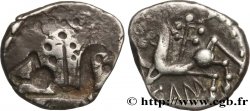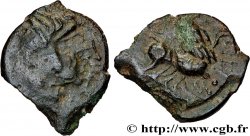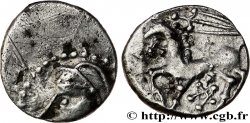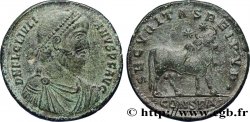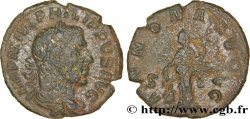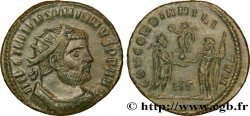E-auction 63-29522 - bga_303227 - GALLIA - BITURIGES CUBI (Area of Bourges) Denier au glaive et à l’annelet pointé
You must signin and be an approved bidder to bid, LOGIN TO BID. Accounts are subject to approval and the approval process takes place within 48 hours. Do not wait until the day a sale closes to register. Clicking on « bid » constitutes acceptance of the terms of use of cgb.fr private e-auctions.
Bids must be placed in whole Euro amounts only. The sale will start closing at the time stated on the item description; any bids received at the site after the closing time will not be executed. Transmission times may vary and bids could be rejected if you wait until the last second. For further information ckeck the E-auctions F.A.Q.
NO BUYER'S FEE.
NO BUYER'S FEE.
| Estimate : | 150 € |
| Price : | 73 € |
| Maximum bid : | 76 € |
| End of the sale : | 30 June 2014 15:14:00 |
| bidders : | 10 bidders |
Type : Denier au glaive et à l’annelet pointé
Date: c. 60-50 AC.
Metal : silver
Diameter : 15 mm
Orientation dies : 9 h.
Weight : 1,94 g.
Rarity : R2
Coments on the condition:
Flan un peu court avec des types partiellement décentré et de frappe un peu molle par endroits. Patine sombre avec de belles irisations
Catalogue references :
Predigree :
Cet exemplaire provient du stock BOURGEY 22 juin 2012, n° 188
Obverse
Obverse legend : ANÉPIGRAPHE.
Obverse description : Tête à gauche ; les cheveux disposés en trois mèches ; grènetis.
Reverse
Reverse legend : ANÉPIGRAPHE.
Reverse description : Cheval sexué libre au pas à gauche ; au-dessus un glaive ; sous le poitrail, un annelet pointé.
Commentary
L’annelet pointé se retrouve sur la plupart des monnaies attribuées aux Lémovices. Il s’en trouve également sur le denier IVR. Sur ce denier, l’annelet semble monté sur une tige ; s’agit-il d’une fleure avec des feuilles partant de la tige ?.







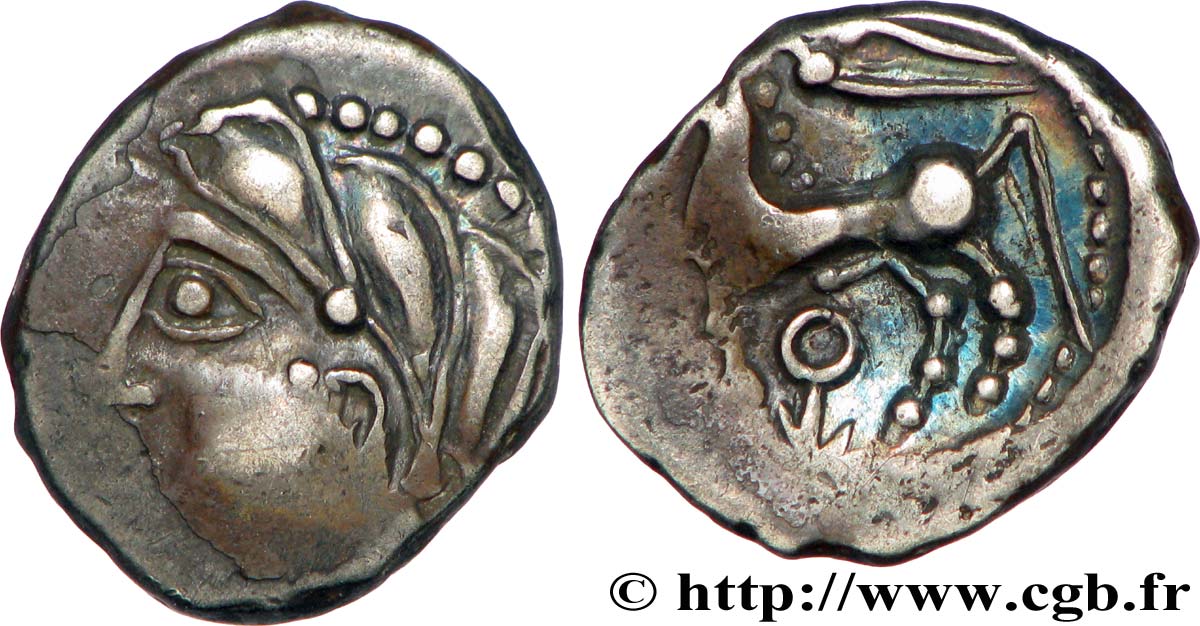
 Report a mistake
Report a mistake Print the page
Print the page Share my selection
Share my selection Ask a question
Ask a question Consign / sell
Consign / sell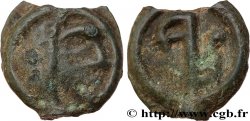
 Full data
Full data
